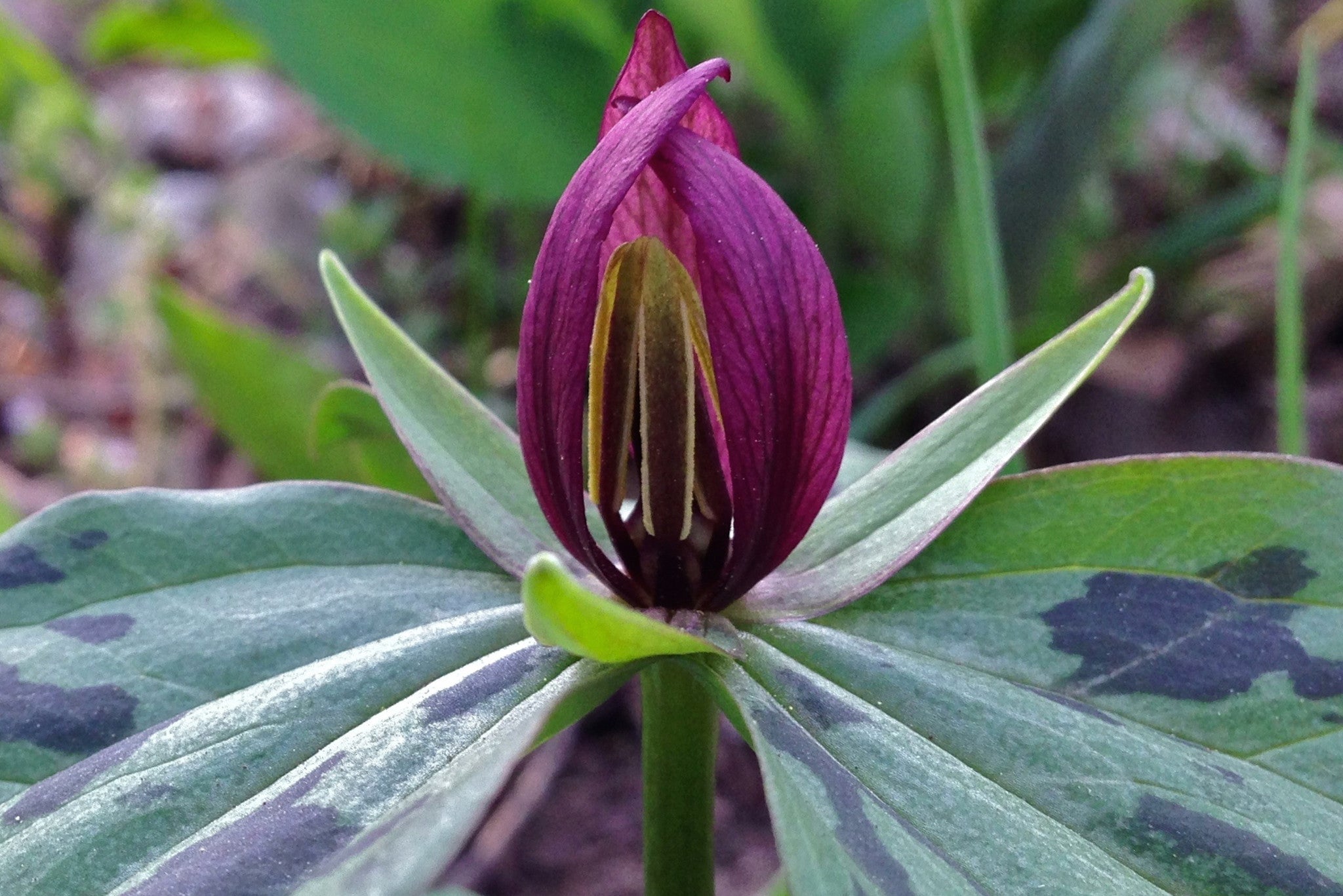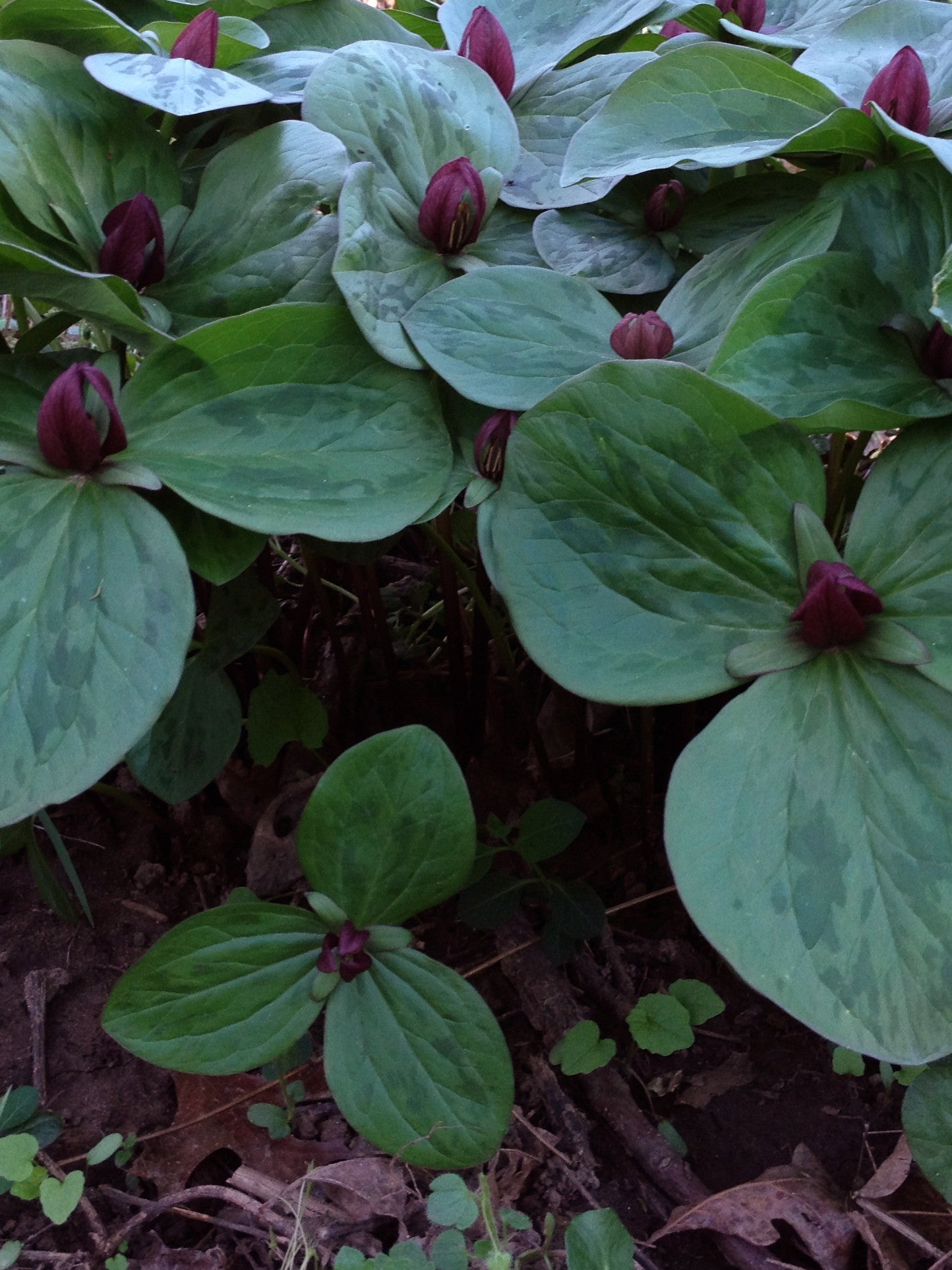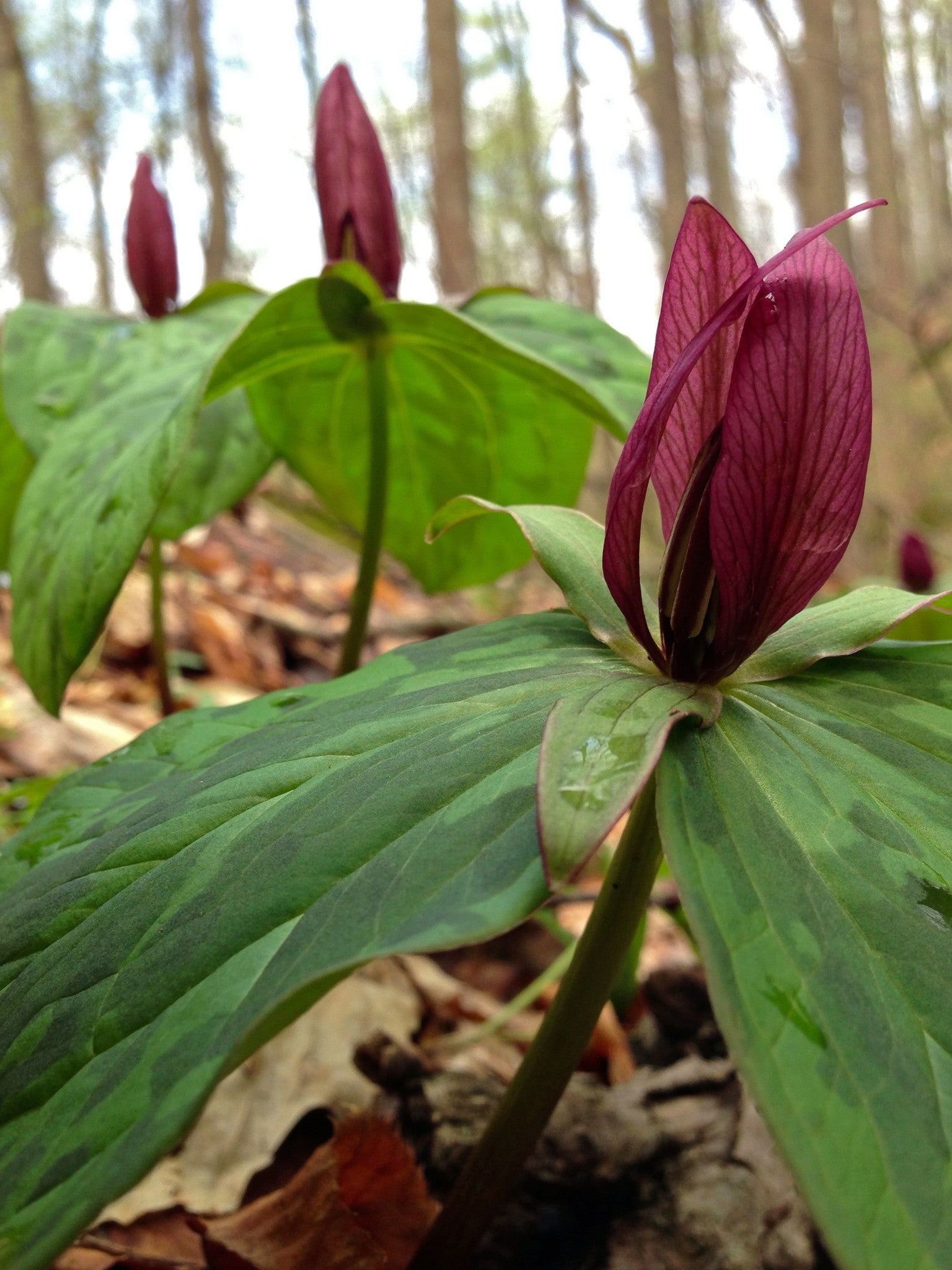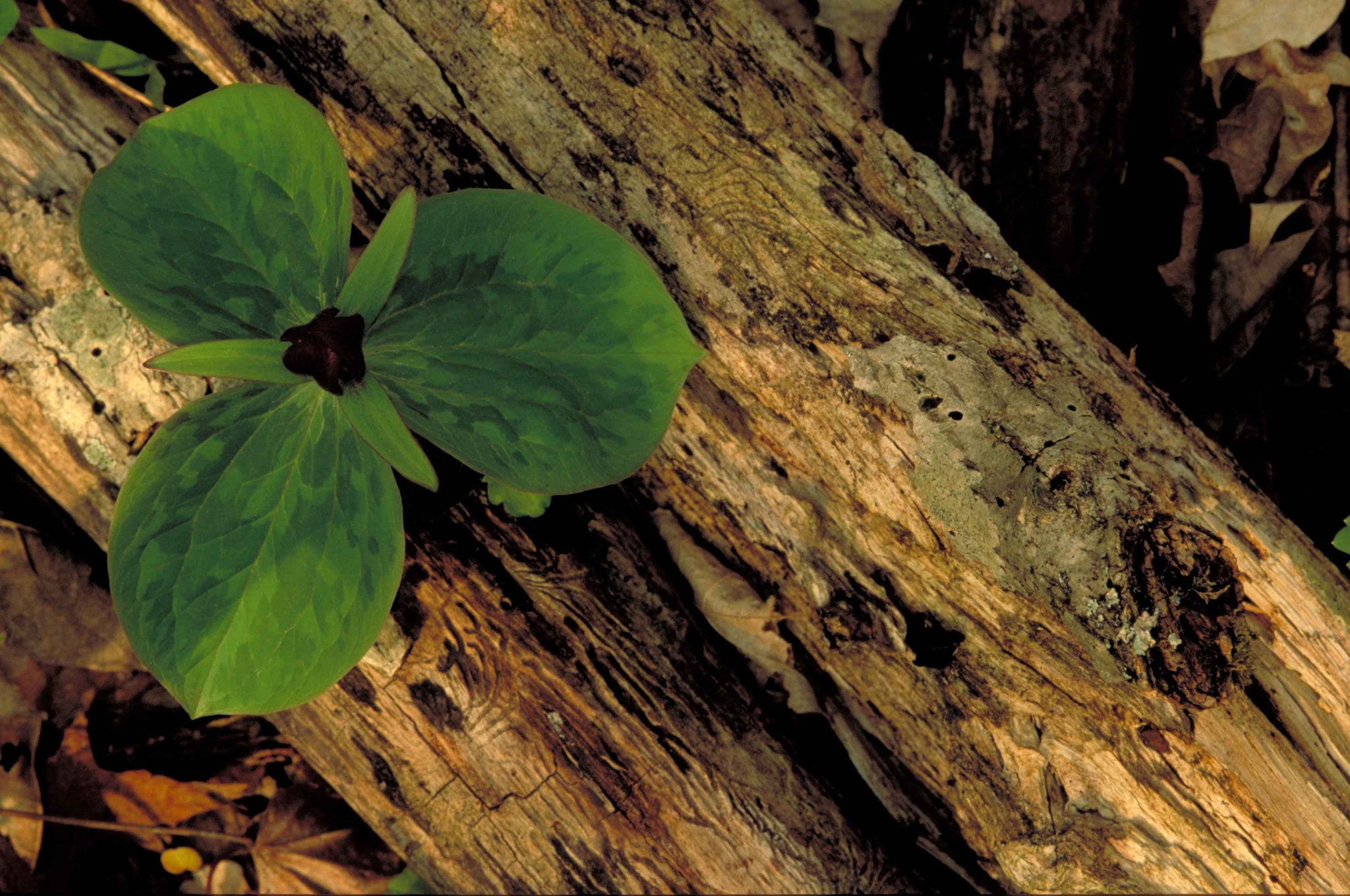Trillium sessile
Approx. 0.5 litre pot
About this cultivar:
Trillium sessile has a simple elegance. Three evenly spaced broad leaves forge a handsome platform for its maroon blooms, which are mottled in shades of green, purple and white. Defined by 3 erect petals, the unique stemless (stemless translate as sessile in latin) flowers gracefully embellish a clump-forming base, whose thick underground rhizomes will slowly colonize if left undisturbed. The smallest Trillium we have.
- Position: Full sun, partial shade, full shade
- Soil: Almost any soil, grows well in Ballyrobert
- Flowers: March, April, May
- Other features: Dappled Shade or Full Shade Loving, Grows well in Ballyrobert, Dappled Shade or Full Shade Loving
- Hardiness: Fully hardy, grows well in Ballyrobert
- Habit: Clump forming
- Foliage: Deciduous
- Height: 10 - 30 cm (0.3 - 1 ft)
- Spread: 10 - 30 cm (0.3 - 1 ft)
- Time to full growth: 2 to 5 years
- Plant type: Herbaceous Perennial
- Colour: Green, purple
- Goes well with: --
About this genus:
Trillium (tril-le-um) is a genus of perennial flowering plants native to temperate regions of North America and Asia. It gets its name from the Latin triplum, triple, alluding to the three parted flowers. Common names include wakerobin, tri flower, birthroot, birthwort. toadshade, and wood-lily.
Trilliums are spring ephemeral perennials, whose yearly life cycle is compressed into a short 6-8 week period in late winter or early spring before the trees leaf out. This ephermeral life cycle does not mean that they have a small impact in the garden. Quite the opposite; their lovely leaves, flowers, and architecture leaves an impression that lasts for the rest of the year.
Trilliums have an interesting anatomy....the 3 "leaves" that give them their characteristic form are actually bracts. The true leaves are greatly reduced structures that surround the underground rhizome. Trillium seeds are also fascinating...they are attached to a nutritious structure called an elaiosome that insects love to eat. When trillium seeds are ripe, ants and wasps carry them to their nests where they consume the elaiosome and leave the seed to germinate...a win-win situation for all species involved!
Trilliums are divided into two main groups...the sessile trilliums whose flower sits on top of the leaf, and the pedicellate trilliums, whose flower is attached to the leaf by a short stem (pedicel).
Despite myths to the contrary, Trillium are easy-to-grow perennials, preferring light shade and almost any garden soil. The difficult reputation comes from their being slow-growing, so be patient (it is worth it!). Try pairing Trillium with other ephemeral spring flowers like Arisaema, woodland phlox or Cyclamen. Or pair it with plants that will continue the floral show when the Trilliums are done. We suggest Tricyrtis or some of the smaller Hosta cultivars.








